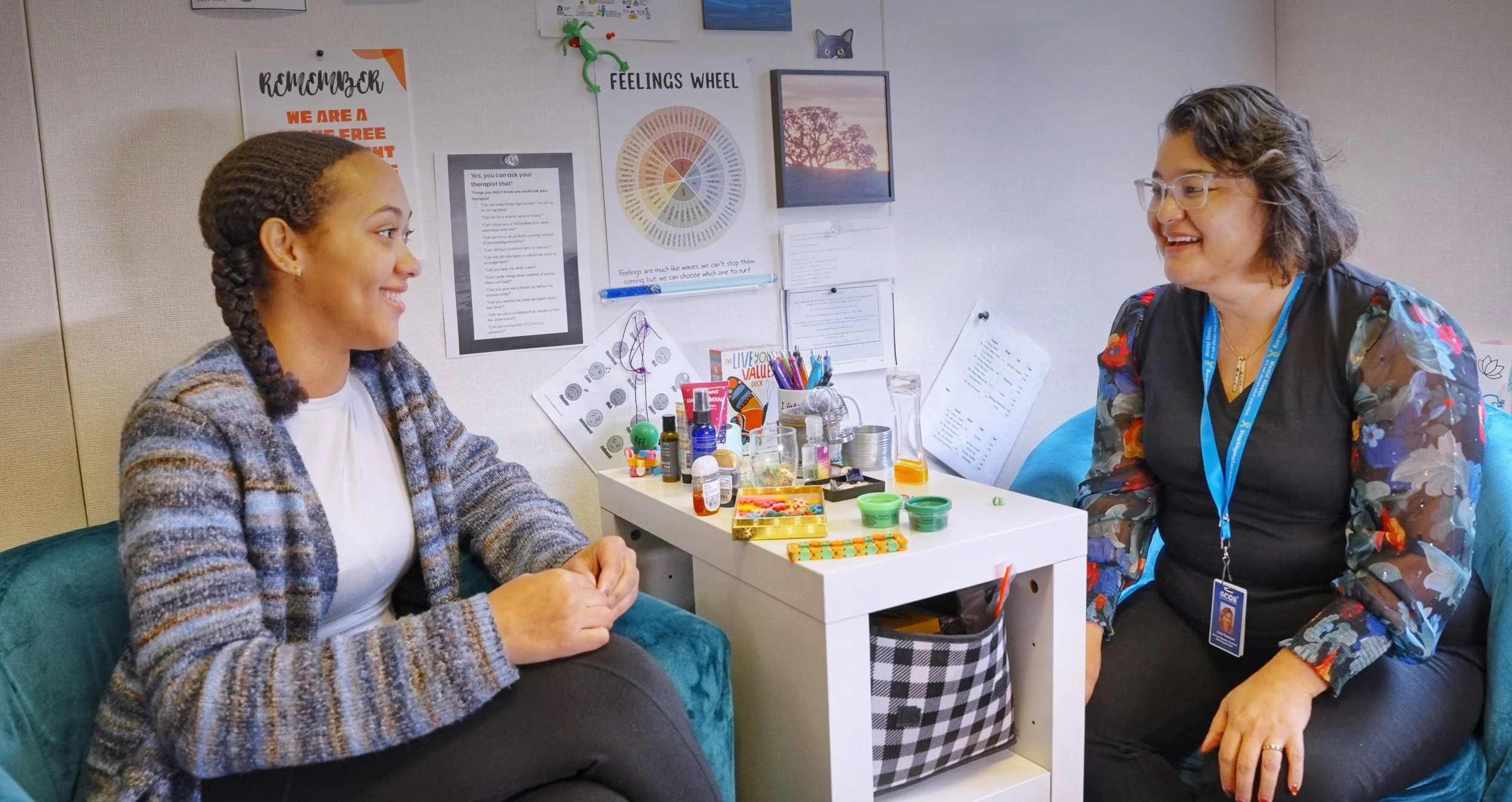
Graduate Clinical Intern Role
Phase 1: On Site (September-October)
Training Resource Home > Graduate Clinical Intern > Phase 1: On Site (September - October)
Phase Overview
In this phase, Graduate Clinical Interns will begin engagement with their assigned school site and develop essential relationships within the school environment. Collaborating with their task supervisor and field instructor, interns will identify learning objectives and begin providing support to clients.
Phase Objectives
Begin engagement with assigned school site and develop school relationships
Develop understanding of role in specific school team
Explore current school processes
Collaborate with task supervisor and field instructor to identify learning objectives and complete learning documents
Begin supporting clients
Resources
STEP 1
School Engagement
Become familiar with assigned school setting, focusing on building relationships with students, staff, and families while actively participating in school activities and events.
-
Obtain room/space keys/access items from school point person
Learn room/space and campus access/check-in process
Learn necessary navigation information, including location of staff parking, restrooms, and mailboxes
Obtain district email and be added to school-wide email listserv
Add name and phone number to safety alert system
Engage in personal introductions to build relationships with staff, students,
and familiesEngage with students and staff (during structured time, recess, lunch, and passing) to build relationships, develop trust, discover interests, and identify areas of concern
Connect with Family Navigator and school staff to learn about making referrals to outside agencies
Seek opportunities to assist with implementation of Tier 1 (school-wide), Tier 2 (group), and Tier 3 (individual) interventions, including school-wide initiatives, community events, workshops, groups, and individual counseling
Participate in school activities and events
STEP 2
Collaboration and Supervision
Graduate Clinical Interns will work closely with their task supervisor and field instructor to identify learning objectives and ensure preparedness to begin providing support to clients.
-
Schedule regular meetings with task supervisor and field instructor
Schedule individual and group supervision with field instructor
Share schedule with task supervisor, field instructor, and other staff
Communicate absences with supervisor
Attend COST meetings and other multidisciplinary meetings (eg., PBIS, MTSS, IEP, 504, Student Success/Support Team [SST], School Attendance Review Board [SARB], School Attendance)
Review Team [SART] meetings
Attend regular meetings with task supervisor and field instructor, prepared to reflect on experiences, ask questions, and plan for follow-up meetings
with supervisor(s)
STEP 3
Learning and Development
Ensure the essential clinical foundation to prepare to provide clinical services in a school setting.
-
Meet with field instructor to review core competencies, determine learning activities, discuss goals, and complete learning agreement
Reflect on personal growth as a professional within the mental health field
Develop understanding of the differences between mental health specialist, school social worker, school psychologist, academic counselor, and behavioral health specialist
Increase awareness and understanding of early learning and
prevention servicesAttend professional development trainings
Review and become familiar with consents and release of information forms
Develop understanding and knowledge of Special Education and related supports for special groups: 504, homeless, migrant, ESL, LGBTQIA+, military families, foster youth
Understand basic knowledge of trauma and how adverse childhood experiences and toxic stress impact behaviors
Develop understanding of the purpose of the culminating project, and begin exploring ideas
Learn the components of the bio-psycho-social assessment and other assessment tools
Explore various resources and materials in preparation for student encounters and interventions (including but not limited to consulting with task supervisor, field instructor, school staff, books, guides, and online resources)
Develop understanding of COST team and how it is coordinated at assigned school site
Learn about the universal referral system at assigned school site and how student support referrals are received
STEP 4
Student Support and Intervention
Through hands-on experience and guided supervision, interns will build their caseloads, facilitate both individual and group sessions, and build documentation skills.
-
Consult with task supervisor and field instructor to build student caseload
Schedule and facilitate 1:1 counseling sessions with non-Medical clients
Learn how to integrate mental health and wellness services into a school setting utilizing a Multi-Tiered System of Support approach
Work to effectively facilitate group workshops:
Collaborate with task supervisor to conduct school site needs assessment to determine potential workshop topics
Identify, refine, and build workshop curriculum
Identify group members and disseminate consents for group workshops
Effectively provide presentations and/or psychoeducation
Learn how to register students for school-based mental health and wellness services at assigned school site
Learn how to document services provided for individual and group workshops
Apply the Social and Emotional Learning (SEL) Core Competencies
Gain confidence in supporting escalated individuals




